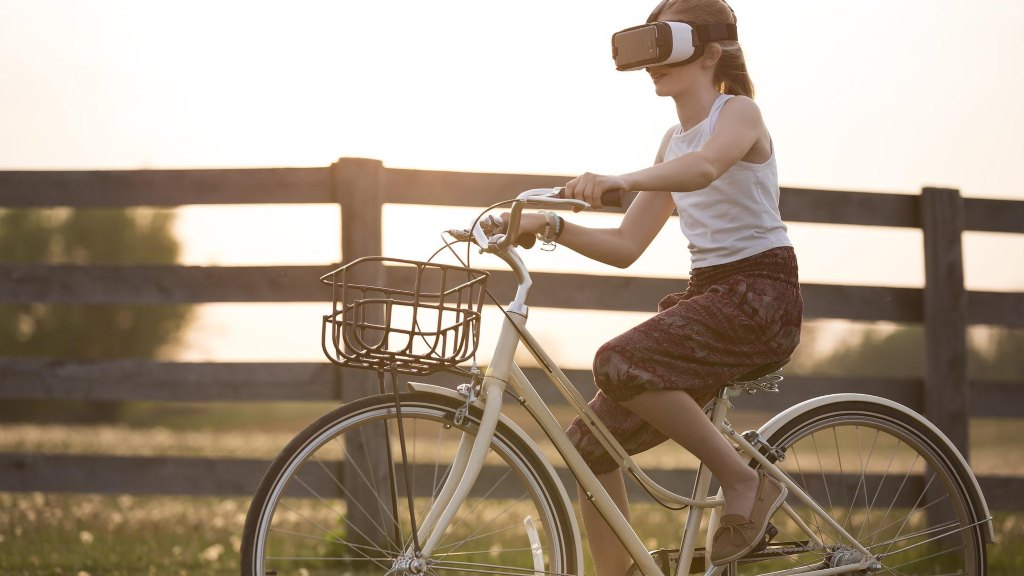
The companies of tourism, retail and consumer goods they will benefit from the use of augmented and virtual reality that unite the physical and virtual world. This is one of the conclusions of the latest global survey by Accenture, which highlights that companies that do not address immersive technologies are at risk of being left behind.
The survey -carried out with more than 11,000 consumers from 16 countries, including Spain,- reveals that in the last year almost two thirds (64%) of the Spanish have already purchased a virtual good or participated in a virtual experience or service and that number is expected to increase. In fact, 88% of consumers surveyed show interest in making purchases through the metaverse. In addition, 37% of Spaniards say they have visited a store in the virtual world to get advice, make a payment or search for a range of products, while 56% of those surveyed plan to do so in the next year.
According to the Accenture Technology Vision 2022 report: “See you in the metaverse. The continuum of technology and experience that redefines new business”, more than half (55%) of global consumers agree that a large part of their lives and livelihoods are moving to digital spaces. In response, the vast majority (90%) of retail executives say they expect leading organizations to push the boundaries of the virtual world to make it more real, increasing the need for persistence and synergies between the digital and physical worlds. Additionally, 72% of global executives say the metaverse will have a positive impact on their organizations, and 45% believe it will be disruptive or transformative.
The metaverse is a reality
“The era of the metaverse has begun and, therefore, for consumer-oriented companies, it is not about deciding whether or not to enter the metaverse, but deciding how to do it”says Alberto Molina, managing director and head of Retail at Accenture in Spain. “Retailers and brands will have to reimagine and experience what new immersive experiences could mean for consumers. In addition to new sales opportunities, the metaverse can also help build consumer loyalty through experiences that go beyond the purchase of a product. For example, retailers can create a personalized experience by offering a live event where customers can sit next to a brand ambassador, then walk into a virtual fitting room, try something on, add it to their basket, and check out. per box.”
The survey also shows that half (51%) of consumers in Spain are buying, or would be interested in buying, a virtual tourist experience or a stay in a virtual hotel. At a global level, the data is very similar, but the generational breakdown stands out, since the figure rises to 55% of millennials, compared to 29% of baby boomers. When it comes to entertainment, 54% of global consumers say they are buying, or interested in buying, tickets to a concert, show or sporting event taking place in a virtual world. In Spain the figure rises to 60%.
Miguel Flecha, managing director and head of Travel for Europe at Accenture, explains that: “It is important to recognize that the metaverse is not intended to replace physical travel, but rather to provide a complementary enhancement to an overall experience that, over time, may become an essential part of the travel ecosystem. Giving the option to sit in a virtual first class seat, enjoy the lounge, stroll through a hotel complex or room opens up opportunities to really engage and inspire people before they travel. And, through “try before you go,” recreating landmarks in all their past glory, or allowing travelers to investigate parts of nature they can’t explore within real-life interaction, the metaverse can create an experience meaningful travel experience that meets or even exceeds customer expectations”.
In the fashion sector, it stands out that 38% of the Spaniards consulted have bought clothes or accessories for an avatar or for themselves and 52% say that in the next 12 months you will buy virtual clothes to put yourself in a virtual environment. The beauty sector follows the same path. 35% of those surveyed in Spain have bought make-up or hair products to apply to an avatar or to themselves in a virtual space through a digital filter. Half of Spaniards will buy these products to create virtual beauty looks in the next 12 months.



